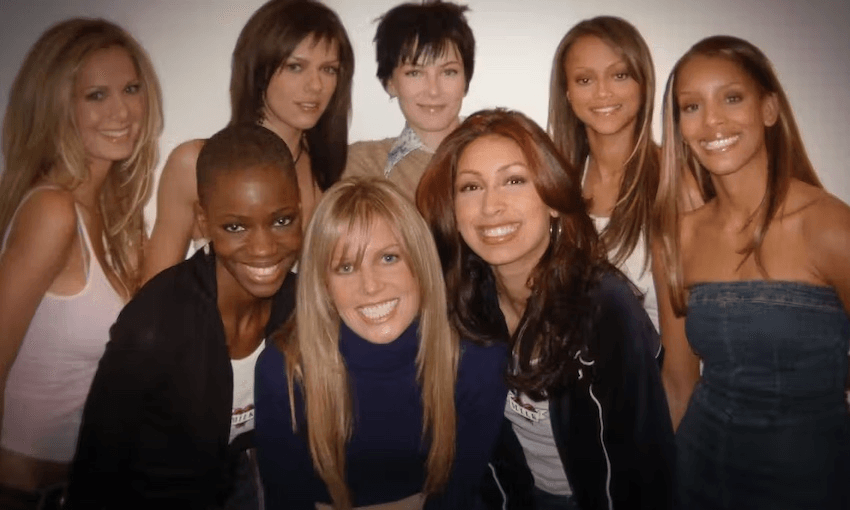The contrivances of the first generation of reality shows are being overtaken by higher stakes games, writes Duncan Greive.
The first season of Married at First Sight NZ is over, and I for one am an absolute wreck. For the past three years I’ve been part of ‘The Real Pod’, a podcast which has chronicled reality television in New Zealand on a weekly basis.
Normally we end a season marveling at how hilarious and absurd it all was. Shows like X Factor, The Block and The Bachelor were funhouse mirror reflections of music scouting, home renovation and the search for love respectively. They were reality TV in name only, and the dominant notes they hit were comedic first, dramatic second – often distantly so.
Not so Married at First Sight NZ. These were undeniably real relationships: messy, unpleasant, ill-starred and very occasionally extraordinarily sweet (hi, Brett and Angel).
This was a harrowing television – a hardboiled reality TV The Bridge to The Bachelor’s more approachable SVU. This is likely because MAFS NZ is in fact a franchise of Gift Ved Første Blik, a Danish concept – representative of a swing away from the heavily controlled and formulaic style which dominated the ‘00s reality scene toward something much more gritty and uncontrived.
Conceptually the first wave of reality TV was akin to a platform game: a linear progression; regular and known obstacles; a certain and controlled finale. The new generation are closer to the open world style of the Grand Theft Auto franchise: the participants set their own agendas to a far greater degree, have more agency and thus behave more like humans do. They also exist in the show 24/7 – at least that’s the idea – rather than being wheeled in for challenges.
Married at First Sight, which ended on Monday, saw experts pair six couples and married them on first meeting. Then followed the results in what they dubbed ‘the experiment’. It is probably not news to you that it ended badly for almost all concerned.
Every relationship bar one had a degree of toxicity. Most had dangerous, not-fit-for-human-habitation quantities – perhaps because they met their peers before their spouses, and thus often had stronger bonds with them. A group became known as ‘the pretty committee’, led by Ben, who was near sadistically cruel to the hapless Aaron. Ben repeatedly emphasised to his handsome young medic husband what a repellent creature he found him, as we watched through cracks in our fingers.
Vicky treated Andrew like an unwanted pet (“mine keeps trying to kiss me”), while he tried to smother her with unrequited love. And those were nominally amongst the most successful relationships – the rest flamed out long before the show was over.
And yet all this unpleasantness was somehow redeemed by watching Brett and Angel for a few minutes each evening. They were exquisitely matched, with similar temperaments and attitudes toward humanity. They were unable to contain their exploding happiness, and you found yourself mooning over them as you might a newborn baby.
If they had all been so happy this would have been a very tedious television show. Yet the success rate was too low for comfort: in the US franchise 10 out of the 15 couples matched have opted to continue life together after the cameras go. Here, it was just the one out of six. The looming failures hung heavy in the air throughout, and gave it a doomy quality which even Brett and Angel couldn’t leaven.
Yet while I hope they get a more even spread of success and failure in future, I also would watch regardless. Something about this format felt like it instantly rendered The Bachelor NZ too kitsch to continue. Having experienced reality TV which makes a far more honest attempt at portraying real life, it will be hard to go back into the dorky contrivances of The Block NZ.
If you zoom out and look at the game above the games of these shows, reality TV is one of the genres in New Zealand most exposed to market forces. Unlike drama and comedy, which are largely funded by the public purse, most franchised reality shows only get made when there is an accompanying commercial case. Thus they rise and are culled with more frequency and ferocity. And when the wind changes it can sweep through the whole sector, rendering a particular style redundant in no time. Just as the talent shows faded a few years ago, so the linear Survivor and Bachelor franchises might be coming to an end, felled by the higher stakes of the likes of Married at First Sight.
Yet with new frontiers comes new ethical challenges. The latest franchise being shopped round? Pregnant and Platonic, aka ‘Pregnant to a Stranger’. Which might be a Bridge too far.



